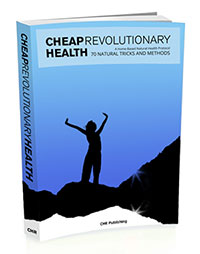Rhodiola Rosea for Anxiety
Rhodiola Rosea, a.k.a. Arctic Root, will be a key part of an anti-stress, anxiety diet I am starting. It is commonly linked to mood-enhancing, energy-enhancing, anxiety-relieving, panic calming and neuro-protective benefits. It has been reported in the social anxiety forum to have very good results in some people to give energy, improve mood and lessen anxiety whereas in others it seems to induce sleepiness, temporarily or longer, and in others yet, rhodiola has been reported to have no effect.
Rhodiola rosea has been labelled an adaptogen, meaning that it has a balancing effect on the body, resulting perhaps in opposite effects in different people, depending on what is needed. Generally its effect has been described by users as enhancing focus and energy, without the jitteriness of caffeine. It seems to work very effectively against anxiety for some, whereas others feel it can make anxiety worse, perhaps because of the energising effect. It is more often described as helping against anxiety, however, than not.
I've just taken my first rhodiola capsule today: within it 250mg of root extract and 130mg root powder, by Viridian brand. If I notice any clear effects I will report on them here but generally it has been said that the effect builds up slowly, so you have to keep taking it for a while and let the benefits of rhodiola become evident over time. A full explanation of the combined effect of all the anti-anxiety measures I am taking will be detailed in the above diet diary, anyway.
Rhodiola is one of David Wolfe's top 25 superherbs, and he claims it enables your body to use oxygen more efficiently and to improve your performance.
Rhodiola rosea has also been often mentioned in being beneficial for making exercise easier and for improving recovery from exercise. It is said to protect muscle tissue, including the heart.
Dr Mercola recommends rhodiola for the same benefits as mentioned here but he emphasizes that using the Siberian variety is important, because it contains other important active ingredients, i.e. rosavin, rosaridin, rosarin, rosin, salidroside and tyrosol. He also explains that the rhodiola herb can be used fresh in salads, as well as in supplement form.
"Adaptogens are a unique group of herbal ingredients used to improve the health of your adrenal system, the system that's in charge of managing your body's hormonal response to stress. They help strengthen the body's response to stress and enhance its ability to cope with anxiety and fight fatigue - slowly and gently, without jolts or crashes. They're called adaptogens because of their unique ability to 'adapt' their function according to your body's specific needs. [...] Adaptogens can calm you down and boost your energy at the same time without over stimulating."

... Dr Frank Lipman writes on his website, and continues:
"[Adaptogens] can normalize body imbalances. By supporting adrenal function, they counteract the adverse effects of stress. They enable the body's cells to access more energy; help cells eliminate toxic byproducts of the metabolic process and help the body to utilize oxygen more efficiently. [...]
"Rhodiola Rosea acts like a hormone thermostat, especially as it pertains to cortisol, one of our main stress hormones. [...] Rhodiola literally helps balance the cortisol levels in your body raising or lowering it as needed. [...] What's more, rhodiola has demonstrated a remarkable ability to support cellular energy metabolism. [...] In my experience, most patients who take rhodiola start feeling better within a few weeks to a month.
And a testimonial from Ali at herbwisdom.com:
"Started taking rhodiola 300mg per day about four years ago for severe anxiety, it is just brilliant. It works within a matter of hours, you do not have to take it for weeks before you feel the effects of it. Rhodiola is incredibly calming but does not leave you drowsy or leave a hungover feeling, nor does it make you feel hyper alert. For anyone who suffers anxiety who just wants to feel what normal is like I highly recommend rhodiola."
Rhodiola rosea has also been noted as a anti-depressant, a MAOI inhibitor, and it has been said to increase serotonin in the brain, decrease sympathetic nervous system activity and increase parasympathetic nervous system activity, improve memory and focus, and even help with weight loss through metabolic stimulation.
[Note that increasing serotonin may or may not be a good thing...]
Negative Side Effects of Rhodiola
Will Houghton, a nutritionist I have been consulting with advised against using rhodiola, valerian or GABA regularly, as he said they are strong herbs and may affect the liver and the kidneys.
Dr. Frank Lipman advices to avoid rhodiola rosea if you have manic depression or a bipolar. He also does not recommend it for pregnant or breastfeeding women. According to Lipman, it may also cause insomnia in unusual cases.
It is generally recommended not to take rhodiola just before bedtime because of the increased energy.
Other Herbs and Articles to Look Into
You may also be interested in other adaptogen herbs with similar effects, such as Siberian ginseng, ashwagandha, medicinal mushrooms, e.g. chaga and reishi, eleuthero and schizandra berry.
GABA can also help to calm the nerves and it has a near-immediate effect. It is debated, however, whether GABA actually does have an effect, and whether it can cross the blood-brain-barrier.
Continue reading....
I have written more about stress and cortisol mechanism in the following articles:
Sugar Addiction/ Intolerance
How to Lose Belly Fat
Hair Mineral Analysis (Adrenal Insufficiency)
How to Control Anger
Read also:
Anxiety Diet Conclusions
Valerian Root to Aid Sleep and Anxiety
We Recommend
Latest Articles
Most Popular Articles
Collection of Best Raw Food Articles
Juice Fasting Articles
Book Summaries
Natural Remedy Library A-Z

Edition 3.0: Cheap Revolutionary Health Ebook: 68 Natural Tricks and Methods - The Amazing Power of Small Everyday Tasks
To be safe, please consult your health-care provider before attempting self-treatment for health issues.
Navigation
Home Latest Articles Conditions A-Z Raw Food Juice Fasting Recipes My Health Journey Best ArticlesAbout CHR:

Ulla is the Editor of Cheap Health Revolution, covering natural remedies and health solutions. Read more about Ulla and this website here: "About CHR"









